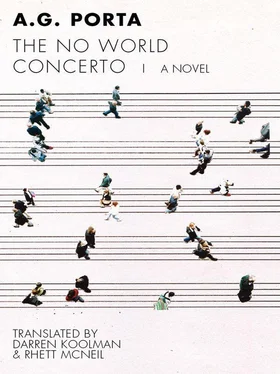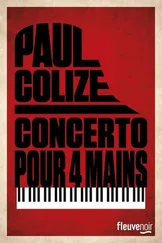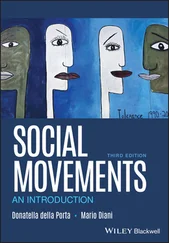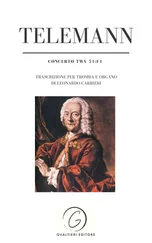A. Porta - No World Concerto
Здесь есть возможность читать онлайн «A. Porta - No World Concerto» весь текст электронной книги совершенно бесплатно (целиком полную версию без сокращений). В некоторых случаях можно слушать аудио, скачать через торрент в формате fb2 и присутствует краткое содержание. Год выпуска: 2013, Издательство: Dalkey Archive Press, Жанр: Современная проза, на английском языке. Описание произведения, (предисловие) а так же отзывы посетителей доступны на портале библиотеки ЛибКат.
- Название:No World Concerto
- Автор:
- Издательство:Dalkey Archive Press
- Жанр:
- Год:2013
- ISBN:нет данных
- Рейтинг книги:4 / 5. Голосов: 1
-
Избранное:Добавить в избранное
- Отзывы:
-
Ваша оценка:
- 80
- 1
- 2
- 3
- 4
- 5
No World Concerto: краткое содержание, описание и аннотация
Предлагаем к чтению аннотацию, описание, краткое содержание или предисловие (зависит от того, что написал сам автор книги «No World Concerto»). Если вы не нашли необходимую информацию о книге — напишите в комментариях, мы постараемся отыскать её.
, Vila-Matas's
, and Marías's
is a many-layered puzzle concerning an old screenwriter who has holed up in a shabby hotel in a never-named but familiar city in order to write a script about his lover — a young piano prodigy who wants in turn to give up music and become a novelist, and who believes she may be in contact with creatures from another world. Ambition, lust, hate, and the need to create all combine to make up a potent depiction of youth — and age — lost in a labyrinth of their own making.
Sinister and erotic, shifting restlessly between realities, and populated by conspirators both real and imagined,
is an investigation of the limits of language, storytelling, and the known world, set against a backdrop of empty concert halls and hazy foosball bars. It is the first of A. G. Porta's books to appear in English, finally joining those of his early writing partner and devotee Roberto Bolaño.
No World Concerto — читать онлайн бесплатно полную книгу (весь текст) целиком
Ниже представлен текст книги, разбитый по страницам. Система сохранения места последней прочитанной страницы, позволяет с удобством читать онлайн бесплатно книгу «No World Concerto», без необходимости каждый раз заново искать на чём Вы остановились. Поставьте закладку, и сможете в любой момент перейти на страницу, на которой закончили чтение.
Интервал:
Закладка:
It’s never quiet outside the station. She’s had to get used to the noise interrupting her sleep every night, until she became inured to the noise itself, and reached the point where she couldn’t hear it anymore. Even so, at daybreak, as the light gradually begins streaming into the room, the sound of the cell phone ringing wakes her with a violent start. The brilliant composer has been drinking all night and is garbling his words, she can barely understand him. Still half-asleep, the girl manages to grasp the gist of his rambling — a comparison of success and failure, success depending on not taking shit from anyone. He says you don’t have to do much to get shit from people, just scratching yourself is enough. He’s partying with the latest conquest and some girl he met during the night. He hasn’t mentioned music yet. Perhaps it got lost somewhere along the way, or perhaps the tour bus left the neighboring country’s capital without it. She hangs up and gets back under the sheets. Her father hasn’t gotten in yet, and she’s had another bad night’s sleep. Once again, she’s been unable to stop thinking about the same things: aliens, hypnotism, and nothingness. She goes out to the hallway in search of Cousin McGregor, but it seems he hasn’t gotten back yet either. So the girl grabs the gun and heads back to the station. Surely one of them is keeping watch. At this time in the morning there are very few people around, and hardly any cars, which combined with the dawning light gives the Grand Central Station an uncanny aspect. Perhaps it’s a holiday, she thinks. Once again, there’s no trace of her cousin or father. She takes out her cell phone and dials his number, but the phone’s turned off and a woman’s voice invites her to leave a message after the tone. When the girl gets back to the hotel room, she tries checking the other phones and the fax machine. She then goes onto the balcony to monitor the plaza. She doesn’t know why, but she feels she should stick to her post on the balcony until her father finally calls. As usual, she doesn’t know where he’s gone, or when he’ll be back. He didn’t tell her, he never tells her. But she shouldn’t worry about it. They really don’t say much to one another at all. Are you writing? he always asks, while avoiding any of her questions. Still, she’d rather not talk about writing until she resolves the question of her hypnosis. But she knows she shouldn’t be worrying about it. What should I do with the fax machine and those phones? Who’s keeping watch at the station? These are now the questions that plague her. A few hours later, she phones the young conductor. He wants her to leave them alone. He wants her to stop calling him. Why is she so jealous, he asks, chuckling condescendingly, when she should be more understanding of his relationship with the new soprano? She should just accept they’re not together anymore; that they don’t make love anymore. Then the young conductor tells her reassuringly that, sooner or later, she’ll forget all about him; time will heal her wounds. The girl would like to be able to coolly sever her association with the young conductor and brilliant composer; she’d love to be able to take a deep breath, hang up, and forget about them in that same instant. She doesn’t want to wait the length of time it takes to heal a wound. So she insults him, reproaches his stupidity, his misplaced arrogance. Success often paralyzes the mind, she says, but she’s never seen it happen so fast, and so thoroughly. The Sinfonietta’s finished, they’ve been ousted from the vanguard, condemned to a future of selling out and merely parroting popular trends. The words come swift and true and from the heart. All they must do to secure musical oblivion is to keep doing what they’re doing. Either way, they’re stuck with the path they’ve chosen. It’s too late for them now. She hangs up.
She still has to resolve the question of her hypnosis, and to record, as soon as possible, the 5 Pieces for piano . She thinks about calling the sound engineer and the producer: she wants to work out the timbre and the amount of reverb needed to sustain a performance of the work at as slow tempo as as possible. She also needs the right piano, one whose hammers and pedals have been prepared exactly the way she wants. She wants to reproduce what she achieved on the piano in the hotel with the English name, whose sound she distorted using metal clips, a few pieces of her mother’s jewelry, and a copy of the philosopher W’s greatest work. Above all, she wants to be authentic, to be true to herself. Now a note, now another note, with an almost interminable silence in between: a surfeit of nothingness in between two ideas.
The hotel with the English name, early the next morning: the girl’s mother, half hidden behind the door, her face smothered in moisturizer, peeks out to see who’s there, finds her daughter, and lets her in. We hardly recognize the mother, since we’ve never seen her looking like this, with her hair tied back away from the creamy mask on her face, draped top-to-toe in an off-white bathrobe, almost the color of bone, pinching a cotton ball as she shuffles across the room. Once inside, the girl takes off her sunglasses. It seems to take a while for either of them to say anything; perhaps it’s because the girl’s visit was unexpected. Her mother’s eyes dart this way and that to evade her daughter’s newly dyed hair. You’ve changed, she says calmly, to understate the metallic blonde hue, the circles under the girl’s eyes. She hasn’t called to have the piano taken away yet, though the girl hasn’t been practicing at all recently. She follows her mother to the bathroom and stands in the doorway, watching her bend toward her reflection in the mirror. I think I’ve been hypnotized, says the girl, getting straight to the point. Her mother turns to look at her momentarily before returning her attention to the mirror, as if she hadn’t been listening — or if she had been, that she didn’t believe her. The girl wants to know if her mother was there when she was hypnotized. It’s the only reason she came. She’s been checking the dates and times in her diary and she came across a particular night when her diary and novel writing suddenly became more voluble and frenetic. She gives her mother a few seconds to respond. Nonsense, she finally says, surely you don’t believe in such things. She looks at her daughter in the mirror. When the scene appears onscreen, it will be as if she’s looking at the camera, as if the audience is looking through the girl’s eyes. Whatever, the girl says resignedly. The next setup will show both women’s faces in the mirror, while the camera, of course, remains concealed. The many awkward silences will keep the tension high throughout the scene. And your father? her mother asks. I spend all day writing, he spends all day waiting, the girl replies. Waiting for what? The girl doesn’t know, but she guesses her father and Cousin McGregor are waiting for something to happen in the Grand Central Station. That’s why they take turns keeping watch there. And you, what do you get up to, as the piggy in the middle? Just writing, the girl says. But I do have a theory. A theory about what? The girl looks at the floor, as if having to consider something before continuing. Have you ever heard either of them talk about encounters with extraterrestrials? The woman’s face, with the vizard of moisturizer now removed, seems to dry up and crack at her daughter’s words. She puts her hand on the marble sink and turns to the girl, fixing her eyes on her, as if she’s finally taking her seriously. Because I think it’s something to do with aliens, the girl adds. Her mother wants to know whether her father told her this story or if she dreamed it up herself. There’s more, says the girl, interrupting her. Then she proceeds to tell her mother all about the gravely ill astrophysicist who wears the classically-cut suit, about the person she suspects is following her, and why she felt the need to hide her identity behind a new hairdo and a pair of large sunglasses: because she might be dealing with alien hunters. She wonders if she should also tell her mother she now carries a gun. The girl moves tentatively forward with the intention of tapping her mother on the shoulder, but then she stops, hesitates, and then finally decides not to tell her. She can’t think of a motive her mother would find plausible. She’s not really sure herself why she carries it. Maybe she’s planning to dispose of the young orchestra conductor and brilliant composer. This makes her smile. It seems a little far-fetched, even for her. All the same, she remembers she started carrying the gun after she heard the latest conquest brag on the radio about hearing voices and writing novels. Maybe her unconscious is trying to tell her something. She looks at her mother in the mirror. She can’t tell if her expression denotes genuine interest, or if she’s just gotten better at feigning it. Her mother turns and puts her hands on the girl’s shoulders. How many hours per day do you write? she asks, looking straight into her daughter’s eyes. Probably too many, she replies, looking straight back at her. You should take a break, then, her mother says. They spend a few silent moments in that awkward pose until the girl eventually breaks eye contact. Perhaps you’re suffering from fatigue and you don’t know it, her mother adds. Then she lists some of the girl’s recent preoccupations: the sick astrophysicist, her father’s strange job waiting for aliens in a train station, her suspicion that someone’s following her, her suspicion that she’s under hypnosis. . and that silly new hairstyle she’s adopted so people won’t recognize her. . don’t you see how crazy it all is? The girl considers the list — extensive but hardly exhaustive, she thinks. What would her mother think if she knew the full list? But she doesn’t want to discuss it with her. Some secrets shouldn’t be shared with anyone, however close you are to them — especially a mother: perhaps the worst possible choice of confidant. The girl’s mother suggests she go see a famous doctor who’ll give her special vitamins. Not today, she says, she has a previous engagement, but she’ll definitely go with her tomorrow. Her mother tells her to accept that she’s been behaving quite strange lately: for one, she’s stopped practicing piano, which is like flushing her future down the toilet; second, she’s constantly fighting with the young orchestra conductor; and then there’s the cousin. . What about him? asks the girl. You know perfectly well what about him, her mother scolds, you know you never saw him, never spoke to him, just like you know all this alien business you think your father’s involved in is utter nonsense. Why is she suggesting vitamins, the girl wonders, if her mother really thinks she’s just crazy? But maybe she doesn’t think this, maybe her mother can’t talk about it because it’s a secret. Of course, how naïve you’ve been, she says to herself, and decides not to take the matter further. The girl then thinks about the scientist in the classically-cut suit, about the link between her mother and the cousin — recalls that the first time she met him was at the reception desk of the hotel with the English name. There’s no doubt in her mind that these three — four, if she includes her father — are all members of the same organization, conspirators in the same plot. She hasn’t been able to add it all up yet, but she knows they’re colluding. Perhaps the question of her hypnosis has been distracting her, so she hasn’t been able to see what’s right in front of her face. The scene continues with another awkward silence, and even more exchanges of fleeting glances. Then her mother says she’s running out of time and needs to get ready for an appointment, as if this were more important than her daughter’s well-being. We’ll talk about it again tomorrow, she says. The girl gets the impression her mother’s appointment is with the cousin. Perhaps it was a certain glint in her eye. Her mother would prefer it if the girl moved back to the hotel with the English name. It’s clear her father doesn’t give a damn about her. He doesn’t care what you get up to, as long as you don’t bother him, she says while dabbing perfume on either side of her neck. They’re expecting her at the main event for the fiftieth anniversary celebrations of the liberation of the neighboring country’s capital. The girl thinks her mother is a little overdressed, even for a formal ceremony. Over the past few days, she’s been reading in the newspapers about all the preparations going on for the celebration, but she hasn’t paid much attention, because it’s for something that happened decades ago. To break another awkward silence, she asks her mother about the liberation, but then doesn’t listen to her answer. She leans against the front doorpost, watching, as her mother performs a final touch-up in front of the mirror. When’s the recording scheduled? she asks wearily, with an expression of slight annoyance. There won’t be a recording, says the girl abruptly. Do you have any idea how long it’s been since you practiced? her mother asks. Then she asks her daughter to zip up the back of her dress — a strapless black dress, half-way up her knee, very chic and very expensive. The girl reluctantly complies, and then goes to get her satchel. Maybe I’ve got more importance things to do right now than record the 5 Pieces for piano , she says before exiting the hotel room, leaving her mother sitting on the edge of the bed, trying to squeeze into a pair of shoes that could very well be made of glass.
Читать дальшеИнтервал:
Закладка:
Похожие книги на «No World Concerto»
Представляем Вашему вниманию похожие книги на «No World Concerto» списком для выбора. Мы отобрали схожую по названию и смыслу литературу в надежде предоставить читателям больше вариантов отыскать новые, интересные, ещё непрочитанные произведения.
Обсуждение, отзывы о книге «No World Concerto» и просто собственные мнения читателей. Оставьте ваши комментарии, напишите, что Вы думаете о произведении, его смысле или главных героях. Укажите что конкретно понравилось, а что нет, и почему Вы так считаете.












